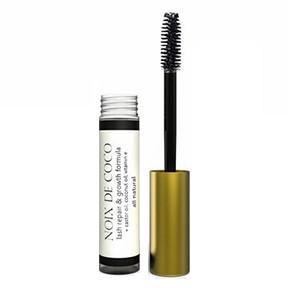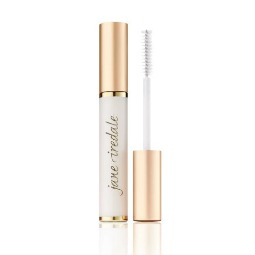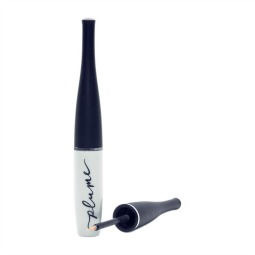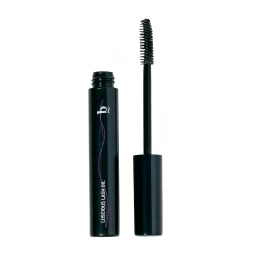In beauty it seems nothing's ever that cut and dry: Should you double cleanse or only wash once? Should you get the extractions at your facial or skip them? How often should you wash your hair? It can be stressful to do the research to figure out what's what. So let me take this one off your plate: You really need to be using an eyelash conditioner.
In the same way that heat tools and hair dye damage the strands on your head, mascara and makeup remover can dry out your fringe, leading to problems-a-plenty. "Our eyelashes help protect our eyes from dirt in the air, and applying and removing makeup can dry out lashes leading to breakage," says New York City dermatologist Joshua Zeichner, MD. "It can even lead to lashes falling out in extreme cases."
Conditioners, he advises, can help lashes in much the same way they treat scalp hair—by softening the hairs themselves and smoothing over the outer layer of the hair shaft, which can be damaged from day-to-day. Considering that mascara is one of the most popular cosmetic on the market, that's something most everyone could benefit from.
Keep scrolling for all the intel on adding a lash conditioner to your routine.
A post shared by Noix de Coco Beauty (@ndcbeauty) on Feb 13, 2018 at 6:18am PST
iframe.instagram-media
How to tell a conditioner and serum apart
Lash conditioners and traditional eyelash serums are actually meant to do different things. "A lash conditioner will keep your natural lashes moisturized and give them the nutrients they need," says Amanda Robinson, founder of LA-based eyelash extension company Iris+West. "A serum, on the other hand, is more likely to have ingredients such as peptides and amino acids that can actually help new lashes grow, lengthen, and add density to your natural lash line."
{{post.sponsorText}}
It's important to note, however, that many oils, which might be branded as "serums" on the tube also provide hydrating benefits to lashes. Natalie Soto, global makeup artist for Jane Iredale adds that "teaming up a serum with a lash conditioner is a surefire way to get longer and fuller lashes."
What to look for in a formula
As is the case with all beauty products, Dr. Zeichner warns against using a product around the eye if it includes fragrance or preservatives. Robinson cautions that it's important to be aware of the lash serum side effects that can come with super-intensive options, like discoloration along the lash line. "My suggestion is that you do your research before putting anything near your eye, and even ask your doctor about how the active ingredients in your serum may affect you," she says.
When to apply a conditioner
Apply conditioners at night, after you cleanse. What I've gleaned from cosmetic chemistry 101 (and Soto confirms) is that oil cleansers work because they're able to break down other oils in your makeup. So, if you have an oil-based serum, such as Noix de Coco Organic Lash and Repair Serum shown below, it will break down your makeup (alternatively: this may be the makeup-removing hack of the century).
Of course, it's also important to keep in mind that the skin around your eyes is more sensitive than in other areas, so exercise caution when applying any product whatsoever. "If you develop any redness, burning stinging, or other rash after applying the product you should wash it off immediately and not use the product again," Zeichner advises.
With that cleared up, it's time to talk about jelly cleansers—as in, should you, or shouldn't you use them? Plus, find out how this buzzy ingredient can *actually* help acne-prone skin.
Loading More Posts...



